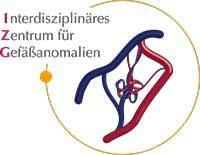Neuroendocrine Tumor (NET) of the Pancreas — Embolization or Chemoembolization: treatment in the Best Hospitals in the World
Treatment prices are regulated by national law of the corresponding countries, but can also include additional hospital coefficients. In order to receive the individual cost calculation, please send us the request and medical records.
Pancreatic Cancer Treatment
- Pancreatic cancer
- Diagnosis by ERCP and biopsy under CT guidance
- Chemotherapy and radiation therapy
- ERCP and bougienage with stenting
- Chemotherapy
- Whipple procedure (pancreaticoduodenectomy)
- Segmental pancreas resection
- Proton Therapy
- Embolization or chemoembolization
- Therapy with Lutetium-177-DOTATATE (Lu-177)

Department of Interventional Radiology
The Department of Interventional Radiology offers the full range of imaging examinations, as well as innovative image-guided minimally invasive techniques for the treatment of tumors, vascular diseases and internal pathologies (for example, CT, MRI, PET-CT, SPECT). The department's doctors have deep knowledge and colossal experience in the field of interventional radiological methods of treatment, which represent an excellent alternative to open surgical interventions. Despite the high level of technical equipment and the presence of advanced computerized systems, the focus is always on the person with his individual needs. Compliance with current clinical protocols and high professionalism of the department's specialists contribute to the successful clinical practice, as well as the reputability of the department among the best medical facilities of this kind in Germany.




Department of Interventional Radiology and Neuroradiology
The Department of Interventional Radiology and Neuroradiology offers a full range of advanced imaging diagnostics and minimally invasive treatments on both an inpatient and outpatient basis. The department has state-of-the-art medical equipment for imaging tests such as X-ray, computed tomography, magnetic resonance imaging, digital subtraction angiography, and mammography. The medical facility also performs many highly effective interventional therapeutic procedures under image guidance, which in many cases allow patients to avoid traumatic open surgery. For example, the department successfully performs local fibrinolysis, thrombectomy, percutaneous transluminal angioplasty, hemostasis, transarterial chemoembolization, uterine artery embolization, and other procedures. The department's neuroradiologists specialize in brain and spinal cord imaging and the treatment of central nervous system disorders. Interventional neuroradiology focuses on the treatment of carotid artery stenosis, brain aneurysms, arteriovenous malformations, dural fistulas, subdural hematomas, brain tumors, skull base and spinal tumors, and chronic back pain. The department's medical team has extensive clinical experience in their areas of expertise. The specialists are guided by the recommendations of the German Society for Interventional Radiology and Minimally Invasive Therapy (DeGIR) and the German Society for Neuroradiology (DGNR), which helps to achieve the best results.






Department of Adult and Pediatric Diagnostic, Interventional Radiology, Neuroradiology
The Department of Adult and Pediatric Diagnostic, Interventional Radiology, Neuroradiology is one of the best institutions of its kind in Germany and offers patients the full range of radiological studies and imaging-guided minimally invasive therapy. The department’s scope of tasks also includes imaging diagnostics in children of all age groups, detection and invasive treatment of cerebral vascular pathology (neuroradiology). Patient care is provided both on an inpatient and outpatient basis.






Neuroendocrine tumors are a rare group of neoplasms, which develop from hormone-producing cells. They can be both benign and malignant. The pancreas is one of the most frequent localizations of neuroendocrine tumors. The surgical method is mainly used for the treatment of the disease. If liver metastases develop, hepatic artery embolization is additionally performed. With unresectable pancreatic tumors, European doctors often resort to pancreatic artery embolization.
Content
- What is pancreatic NET
- Treatment methods
- What is embolization
- Hepatic artery embolization
- Pancreatic artery embolization
- Why is it worth undergoing embolization abroad
- Treatment in Europe with Booking Health at an affordable price
What is pancreatic NET
Neuroendocrine tumors (NETs) are a group of neoplasms, which develop from hormone-producing cells. They account for approximately 3% of all pancreatic tumors. Tumors are often detected in young people. The peak incidence falls on the working age of 30-60 years.
Pancreatic neuroendocrine tumors are divided into highly differentiated and poorly differentiated ones. The last ones are related to pancreatic cancer, but they are more favorable than normal carcinoma. Such malignant tumors grow relatively slowly. Patients with malignant NETs have relatively good survival rates, as compared to "normal" pancreatic cancer: five-year survival rates are about 33%, ten-year – 10%.
Tumors may or may not produce hormones. "Silent" NETs account for about 60% of cases. In fact, these neoplasms can also produce biologically active substances. They just do not produce very active hormones or not much of them, so there are no common symptoms. The most common hormone-producing neoplasms are insulinoma, gastrinoma, glucagonoma and VIPoma. Other neuroendocrine tumors are much less common.
To assess the grade of neuroendocrine tumors, doctors use the proliferation index and the mitotic index. Simply put, they determine how quickly cells divide. The grade can be G1, G2, or G3. The last one is malignant, the first two are considered benign. However, their "bening course" is very conditional, since even such slowly growing neoplasms are capable of metastasizing, reaching large sizes and producing a large amount of hormones, which cause severe metabolic disorders or local symptoms from the gastrointestinal tract.
There can be only three stages of pancreatic NET. If distant metastases develop, stage IIIB is determined.
Most neoplasms are benign. On average, the five-year survival rate for patients with pancreatic neuroendocrine tumor is 80%. It is almost 100% with localized small neoplasms, which doctors managed to remove totally, but only 40% with a locally advanced form of pathology and 25% with a metastatic form.
Treatment methods
The standard treatment for patients with pancreatic neuroendocrine tumors is surgery. Doctors perform an organ resection. They remove the part of the pancreas where the tumor is located. Whenever required, a single-stage resection of metastatic tumor foci can be performed (combined surgical interventions).
Some patients do not need any other treatment. However, if the tumor is malignant, and if it is metastatic neuroendocrine tumour or it has not been completely removed, additional therapeutic techniques can be used. These may include:
- Chemotherapy.
- Targeted therapy.
- Immunotherapy.
- Radionuclide treatment.
- Ablation.
- Embolization.
- Chemoembolization.
What is embolization
Embolization is used for neuroendocrine pancreatic tumors or metastatic foci suppression. This is a treatment method, which involves closing the lumen of the vessels supplying the tumor. It has been used in oncology for decades. The technique is constantly being improved, so the response to the treatment becomes more common, while the complications are less and less frequent.
Basically, embolization is used together with regional chemotherapy. This treatment option is called chemoembolization. The most common methods include drug-eluting microspheres or oily chemoembolization: the injection of an oily emulsion of lipiodol with chemotherapy drugs.
This method has the following advantages:
- Minimal invasion – a small incision in the leg or arm is enough to penetrate the vessels of the pancreas through the vasculature.
- Hospital stay is up to 4 days.
- Fast recovery.
- Good tolerance of the procedure as compared to other cancer treatment options, including surgery or ablation.
- Low risk of complications.
- It can be combined with any other treatment for the disease.
Embolization is not usually used as the first choice for pancreatic neuroendocrine tumors. The best options are surgical interventions. However, chemoembolization is a good treatment for patients with unresectable, recurrent, or metastatic neuroendocrine tumors.
Hepatic artery embolization
With neuroendocrine tumors, patients treated with pancreatic resection often require additional medical procedures to eliminate metastatic foci in the liver. Whenever possible, they are also removed. However, resection is not possible in all patients. The second most effective treatment method is hepatic chemoembolization.
Surgery and embolization are good treatment options for patients with metastatic tumors. The primary pancreatic neoplasm can be completely removed by surgery. Metastatic foci in the liver are suppressed by chemoembolization.
To close the lumen of the vessels, drug-eluting microspheres are usually used. Doctors inject them into the branches of the hepatic artery. They block blood flow in metastases, which die off within a few days. As a result, metastatic tumors can decrease in size by 5-10 times, and sometimes disappear completely (they are not detected by radiation diagnostics). Drugs are released from the microspheres within a few weeks and destroy the remaining cancer cells in the liver.
The procedure is performed with preserved liver function. It usually does not lead to severe liver failure. This is due to the fact that most of the parenchyma receives blood from the portal vein, and only a quarter is supplied by the hepatic artery. On the contrary, the tumor receives mainly arterial blood. Therefore, after the closure of these vessels, it is damaged much more than the healthy part of the liver.
Pancreatic artery embolization
Embolization of the vessels of the pancreas is used less frequently in oncology. The procedure is basically used for malignant tumors.
The doctors can use this treatment method for pancreatic tumors in the following situations:
- Unresectable tumor – for its local control.
- Prior to surgery – for reducing blood loss, reducing the trauma rate of the surgery, and reducing the risk of recurrence.
Embolization reduces the tumor and also relieves the symptoms of the disease: jaundice and abdominal pain.
The procedure is performed through the femoral, less often – radial, brachial, axillary artery. The doctor makes an incision in the leg and inserts a catheter. It reaches the pancreatic arteries. Angiography is performed – a specialist injects a contrast agent into the vessels to assess the type of blood supply to the tumor. A series of X-rays are then taken. This is how the doctor determines whether a patient can be treated using embolization, which vessels should be blocked, and which vessels should be protected from the penetration of embolization agents into them.
Oily chemoembolization is mainly used for the treatment of pancreatic tumors. The doctor injects an emulsion, which blocks blood flow. It persists for a long time in the tumor, damaging it with chemotherapy. The vessels are not closed forever, but only for a while. Then the blood flow is restored and the cancer cells die from a lack of blood supply by that time. In the future, the procedure can be repeated. It is used as long as the patient responds to treatment.
It is important not only to achieve reduction of the tumor size, but also to prevent complications. They can develop if the embolysate enters non-target vessels. To prevent this, the doctor accurately examines the blood flow in the tumor area. If the contrast agent enters the non-target vessels, then the embolization agent can also penetrate there. Such vessels are closed with a balloon catheter during the embolization procedure.
Vascular embolization can cause the following symptoms: abdominal pain, nausea, vomiting, fever. Their occurrence indicates the development of postembolization syndrome. It lasts for 2-3 days. Symptoms are caused by the death of cells, which are "disconnected" from the blood supply. To reduce the severity of postembolization syndrome, doctors use drug therapy. Patients receive drugs to relieve fever and pain. Doctors provide the treatment to improve the function of internal organs, if necessary.
Why is it worth undergoing embolization abroad
The patients suffering from severe diseases, including oncology, often prefer to undergo treatment abroad. They visit developed countries. The best hospitals in the world use innovative techniques, which are more effective and safer.
There are several reasons why you should go to Europe for endovascular embolization for pancreatic neuroendocrine tumors:
- Vast experience in the procedure. In most hospitals in the world, embolization cannot be performed at all, and if it is still carried out, then the experience of its use is poor. However, we will select a hospital for you where the procedure is performed frequently and with great success.
- Specialists in Europe use various options for chemoembolization, including oily chemoembolization and the application of drug-eluting microspheres.
- Embolization of both pancreatic and hepatic arteries can be performed.
- High-precision diagnostics allows the doctors to perfectly assess the blood supply to the tumor.
- The use of superselective embolization: the vessels are blocked as close to the tumor as possible in order to improve the accumulation of chemotherapy drugs and minimize the risk of complications.
- Non-target vessels are protected with a balloon catheter to prevent the penetration of embolization agents into them.
- Embolization can be successfully combined with other treatment methods for neuroendocrine tumors, including surgery, drug therapy, and radionuclide therapy.
In Europe, the departments for x-ray-guided surgery have state-of-the-art equipment. Doctors successfully perform catheterization of even small vessels. They can access the arteries of the pancreas or liver not only through the femoral artery, but also through the radial artery. In this case, the risk of complications from the puncture is reduced and strict bed rest for 24 hours is not required.
Treatment in Europe with Booking Health at an affordable price
To undergo treatment in one of the European hospitals, please use the services of the Booking Health company. On our website, you can see the cost of treatment in different European hospitals, compare prices and book a medical care program at an affordable price. Arterial embolization in European hospitals will be easier and faster for you, and the cost of treatment will be lower.
Please leave your request on our website. Our employee will contact you and provide consultation about the treatment in Europe. Booking Health will take care of the organization of your trip. We will provide many benefits for you. These include:
- We will select a hospital for treatment in Europe, whose doctors specialize in the treatment of pancreatic neuroendocrine tumors.
- We will help you overcome the language barrier, establish communication with your attending physician.
- We will reduce the waiting period for the medical care program and book a doctor's appointment on the most suitable dates.
- We will reduce the price. The cost of treatment in European hospitals will be lower due to the lack of coefficients for foreign patients.
- We will take care of all organizational issues: documents for entering the country, transfer from the airport, hotel, interpreting services, etc.
- We will prepare a medical care program and translate medical records. You do not have to undergo previously performed diagnostic procedures.
- We will provide communication with the hospital after treatment in Europe.
- We will organize additional examinations and treatment in European hospitals, if necessary.
- We will buy medicines abroad and forward them to your native country.
- We will help you keep in touch with the hospital and the attending physician after treatment in Europe.
You will receive treatment from the best doctors in the world. The Booking Health specialists will help you reduce the cost of treatment and take care of all organizational issues, and you will only have to focus on restoring your health.
Authors: Dr. Vadim Zhiliuk, Dr. Sergey Pashchenko

